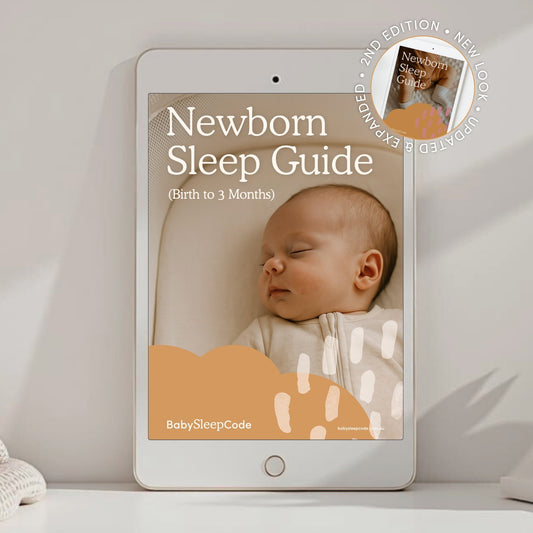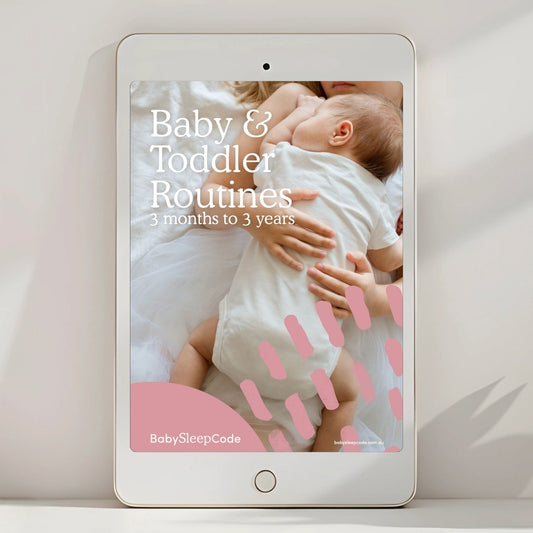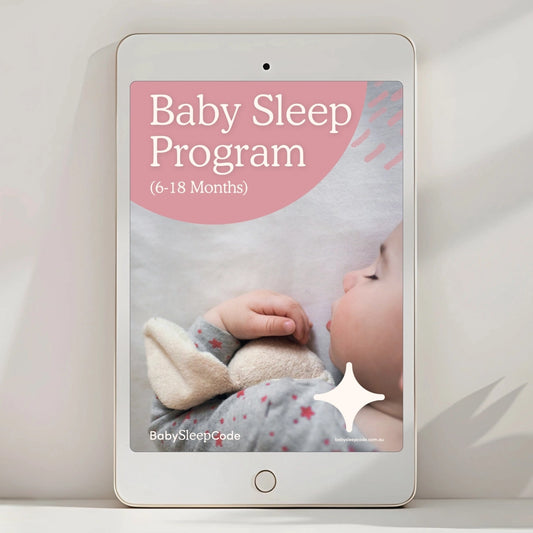Few topics in parenting spark more debate than the decision to sleep train. Parents looking for help in online peer groups often face a flood of polarizing opinions, some of which can be alarming to hear. It’s heartbreaking to think you might be causing harm to your baby while simply trying to improve sleep for the whole family.
Sleep training isn’t necessary for everyone, but when parents do consider it, it’s important to make decisions based on evidence rather than subjective opinions.
This blog dives into the research behind sleep training and addresses common concerns about emotional attachment, developmental impact, and parental mental health—so you can feel confident in choosing what’s best for your family.
Does sleep training negatively affect secure attachment?
The notion that sleep training harms the parent-child bond is not supported by scientific evidence. In fact, none of the hundreds of clinical studies conducted on sleep training have found any negative impact on attachment or long-term emotional well-being.
Notably, in Hiscock’s extensive and enduring longitudinal study – the
most comprehensive examination of sleep training to date, involving 326 infants, followed participants for five years and found no differences in attachment, behaviour, or cortisol levels between sleep-trained infants and those who were not. Similarly, a 2016 randomized controlled trial conducted by Gradisar et al. demonstrated that babies who underwent sleep training showed no differences in emotional attachment or long-term behavioural outcomes compared to those who didn’t. The study concluded that sleep training has no harmful effects on the emotional bond between parents and infants.
Additionally, a 2022 umbrella review analyzing 24 studies with over 11,500 participants concluded that sleep training interventions are both effective and safe for families experiencing sleep issues.
Even without these studies, it's easy to understand why sleep training doesn’t negatively affect attachment when we consider how secure attachment develops. A secure bond between parent and child isn’t formed from any single moment or event. Instead, it’s a continuous, dynamic process that builds through countless everyday interactions, emotional responsiveness, and shared experiences over time. Much like leaving your baby at daycare or buckling them into a car seat they dislike, a few days or weeks of setting healthy sleep boundaries—while consistently offering comfort and support—cannot undo a well-established secure attachment.
Does sleep training mean "Cry It Out"?
Many parents hesitate to sleep train because they associate it with the "cry it out" method. While studies show that even cry it out does not harm a baby, it’s not the only option available. Sleep training isn’t an all-or-nothing approach; there are many gentle, supportive methods.
While some parents find the cry it out method quick and effective, I personally couldn’t imagine using the cry it out method—and I think it puts more stress on parents than necessary. There are many more gradual, hands-on ways to improve your baby’s sleep while still being responsive to crying.
Can sleep training improve the parental-baby bond?
Sleep training doesn’t just benefit your baby—it can have profound effects on the entire family’s well-being. Research consistently shows that sleep deprivation in parents is one of the strongest predictors of postpartum depression (Field, 2018). When parents are exhausted, it’s harder to be emotionally available, patient, and connected to their child, which can strain the parent-child relationship.
Improved sleep for both parents and babies leads to stronger family dynamics and better mental health for parents. A 2017 study found that mothers who participated in sleep interventions reported lower levels of stress and improved emotional well-being.
The same study also found that babies who slept better had improved nighttime regulation and longer sleep stretches. Well-rested parents are more emotionally available, patient, and connected, which ultimately strengthens the bond with their child.
Will sleep training affect my baby's cognitive development?
Another frequent question is whether sleep training might impact cognitive development. However, there’s no evidence to suggest that sleep training negatively affects cognitive development. On the contrary, getting enough sleep is critical for a baby’s brain development. A 2017 narrative review highlighted that sleep plays a crucial role in infant growth and cognitive function. Babies who sleep well tend to perform better in developmental milestones, such as memory, language acquisition, and problem-solving.
Sleep training helps establish healthy sleep habits that allow your baby to get the rest they need for optimal development. Well-rested babies are more likely to engage in activities that promote learning and cognitive growth during their waking hours.
How do I know sleep training is right for my family?
Sleep training is a personal decision, and it's not necessary for every family. However, if sleep deprivation is affecting your well-being or your baby’s ability to rest, it can be a safe and effective solution. Pediatricians recommend sleep training as an evidence-based method for addressing sleep difficulties.
While social media can sometimes feel like a minefield of conflicting opinions, the clinical research is clear: sleep training is safe, effective, and won’t harm your bond with your baby. Remember, sleep training isn’t about leaving your baby to cry alone—it’s about teaching them how to become confident, independent sleepers, with a method that feels right for your family.
Looking for gentle sleep solutions?
If you're struggling with sleep, our Baby Sleep Guides offer gentle, science-backed techniques to improve your baby’s sleep. Whether you're looking for the fastest solution to solving your baby's night wakes or a more gradual approach to changing sleep habits, we have options to fit your family’s needs.
For more personalized support, we also offer online sleep consultations. We'll work with you to create a tailored sleep plan and provide daily guidance to help your baby become a contented, independent sleeper.
















